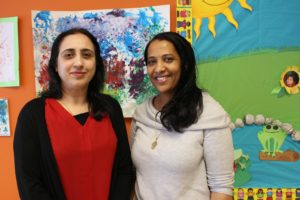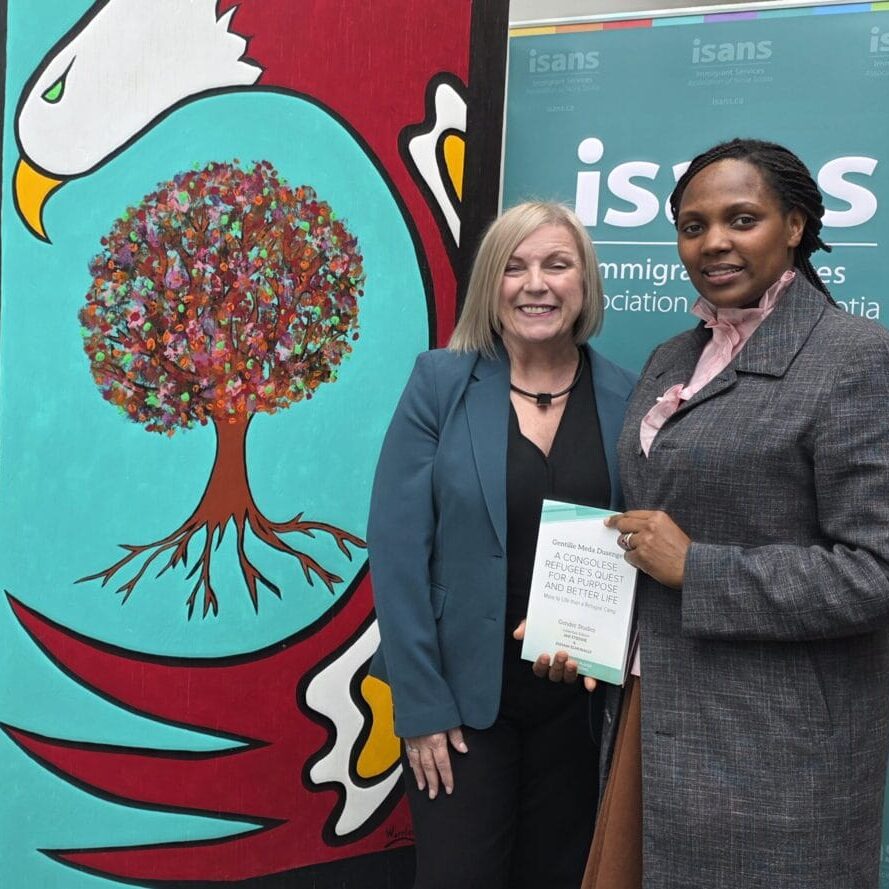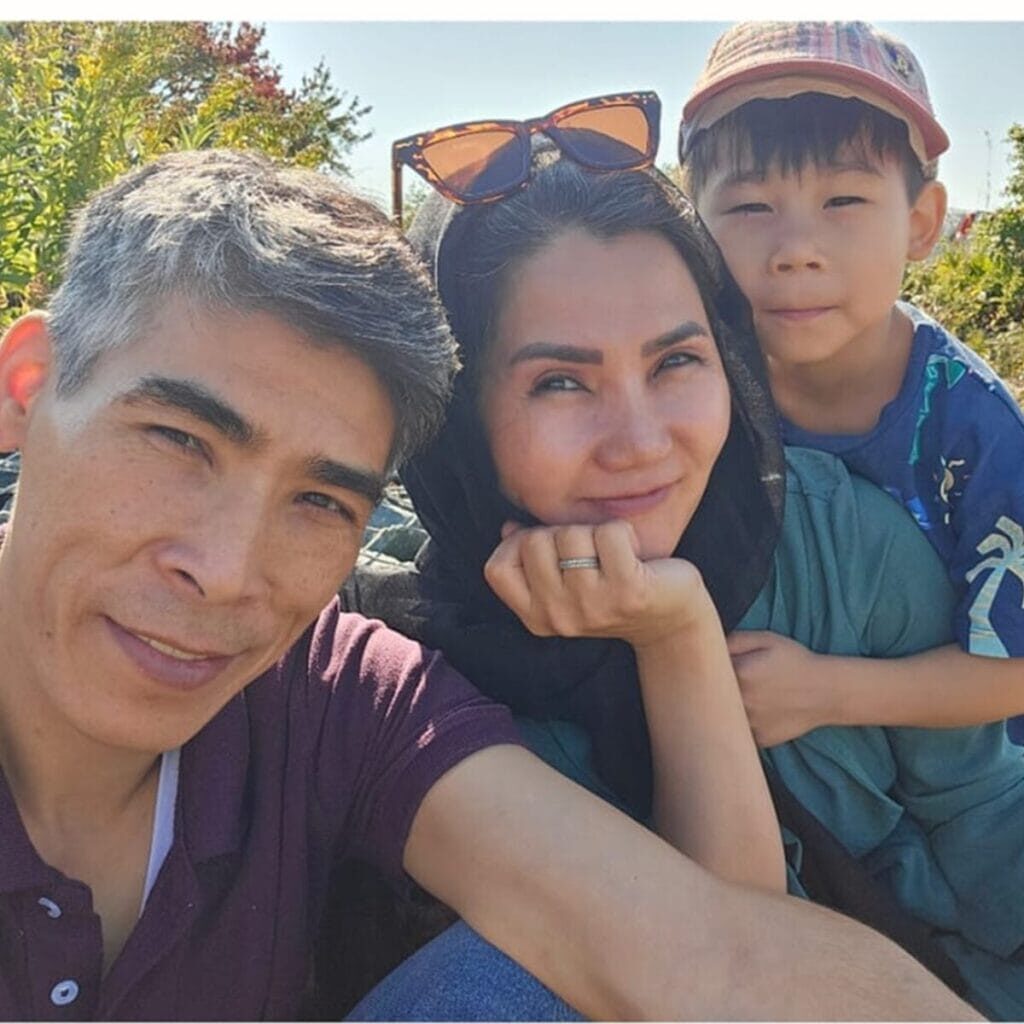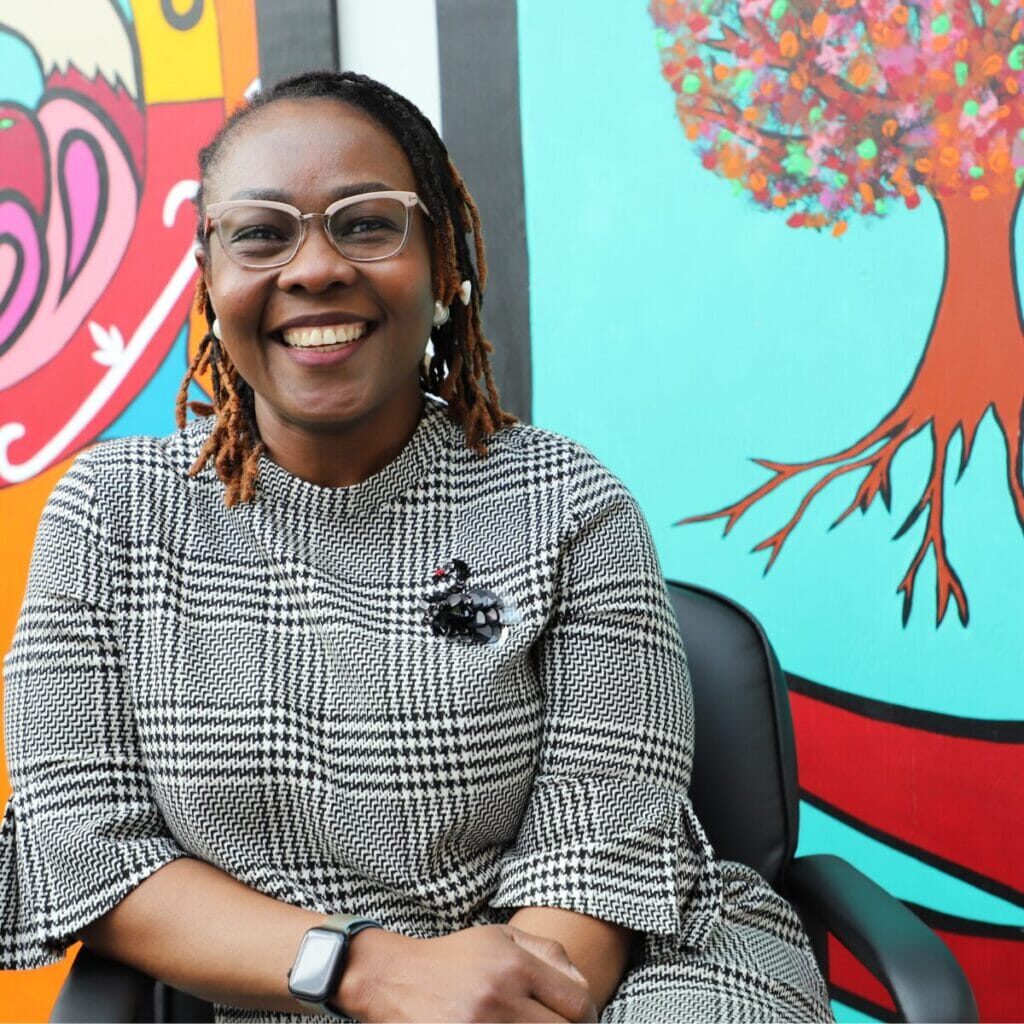Squiggle Park & Early Childhood Education at ISANS

ISANS is known for its extensive list of services for newcomers, including settlement services, language classes, employment counselling and job-readiness programs, support for immigrant business and much more.
Our Early Childhood Education (ECE) team are some of the many staff working behind-the-scenes to make sure newcomers have access to these services.
ISANS has two ECE centres for children ages 6 months to 13 years. Tayitu Sebsibie is the ECE Supervising Team Lead at ISANS’ office on Joseph Howe Drive. Baseera Khan is team lead at the Mumford location.
 Tayitu and Baseera plan the children’s daily activities. A typical day at the centre includes free play, small group activities, colouring, snack and outdoor physical activities.
Tayitu and Baseera plan the children’s daily activities. A typical day at the centre includes free play, small group activities, colouring, snack and outdoor physical activities.
“We focus on communication at the beginning,” Tayitu says, “and as the children start to learn English and they start to communicate, we expand based on their interest.”
“The children learn English faster than the parents,” she adds, laughing. “We see them develop a lot.”
The two centres have the same routines and curriculum and both centres use Squiggle Park, a literacy app created by a Halifax start-up. Squiggle Park uses colourful monsters in a simple game format to help develop reading skills. It’s aimed at pre-school through third grade students.
“It’s like a video game, but it’s a learning game,” Tayitu says. “The children will play it on their own without help or anything, and it has different levels. It starts with the basic alphabet, so if they know capital letters and small letters, it will go from there.
Right now we’re piloting the program, so they have to play it at least 30 minutes per week. And they are adapting really well.”
The children also enjoy logging in on their own.
“They have their own passwords,” Baseera explains. “These are like symbols. We print it and put it up in the class, so they see their symbols and the login is really easy. They really enjoy it.”
Like many ISANS services, the childcare program was expanded to accommodate refugee arrivals from Syria. Arabic-speaking instructors were brought on staff to help, but language continues to be a barrier when caring for children from different cultures. ECE staff will use interpreters or get creative when communicating with parents.
“In the beginning, it’s hard,” Baseera says. “Most of the time you use body language.”
The ECE centres help parents as they adjust to life in a new country.
“They can bring their child and they can leave their children in the centre, and they can have their quiet meetings without worries,” says Tayitu.
“They can go to their language classes for training,” Baseera says. “They can go to the employment workshops, their appointments, orientation programs.
[And] the children are not just playing. We have a curriculum, a routine. They are playing, but at the same time, they are learning something.”
Share this




